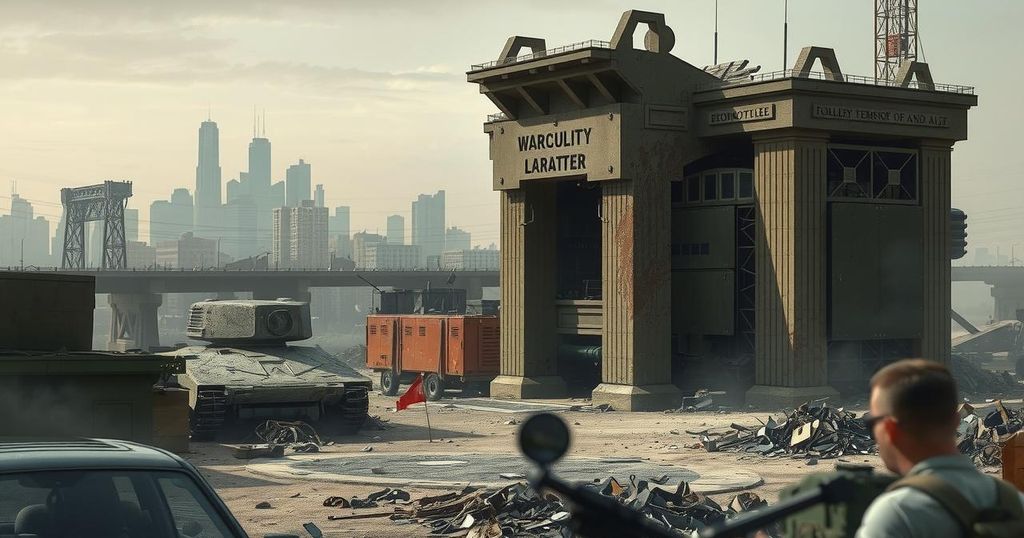Sudanese Army Reclaims Presidential Palace Amid Continuing Conflict

The Sudanese army has regained control of the presidential palace in Khartoum from the RSF, marking a key turning point in the two-year conflict. Soldiers celebrated this victory, while the RSF has yet to respond. The situation remains dangerous with ongoing hostilities and humanitarian concerns stemming from the war.
The Sudanese army has successfully recaptured the presidential palace in Khartoum from the Rapid Support Forces (RSF), marking a significant development in the ongoing conflict that has persisted for nearly two years. Military leaders have confirmed this achievement, which is accompanied by visual evidence of soldiers celebrating and expressing their gratitude.
The RSF has primarily maintained control over the capital and western regions of Sudan since the war began, making the army’s reclamation of Khartoum a crucial milestone. The army has also achieved recent victories in central Sudan, indicating a potential shift in the dynamics of the conflict.
Witnesses reported explosions resulting from drone strikes and air attacks near the Republican Palace, highlighting the intensity of the ongoing hostilities. RSF commander Mohamed Hamdan Dagalo, also known as Hemedti, has publicly affirmed his commitment to defending the areas under RSF control, while threatening to escalate attacks in various northern cities.
With multiple peace initiatives having failed, both military factions are determined to continue their fight for dominance over strategic locations. According to the United Nations, this war has precipitated the world’s largest humanitarian crisis, with allegations of extensive human rights violations leveled against both parties involved in the conflict.
In summary, the recapture of the presidential palace by the Sudanese army signifies a potentially transformative moment in the conflict, as it seeks to regain control of Khartoum from the RSF. Despite the army’s advancements, the situation remains volatile, with ongoing threats and a humanitarian crisis that underscores the urgent need for resolution.
Original Source: www.bbc.com








